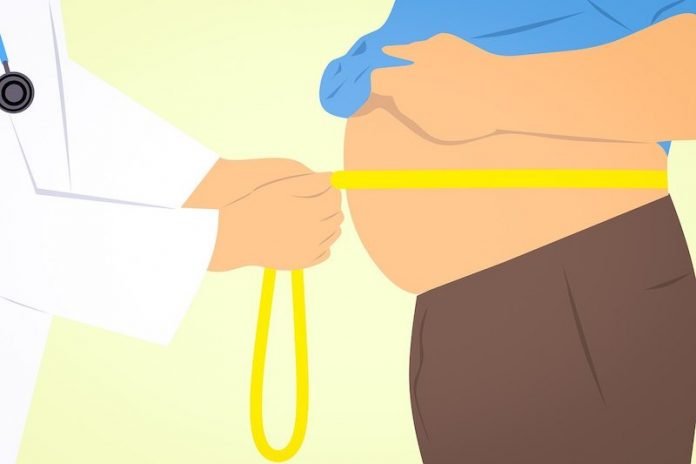
In a new study, researchers found that the COVID-19 pandemic is having a big impact on people with obesity as they struggle to manage their weight and mental health during shelter-in-place orders.
The research was led by The University of Texas Health Science Center at Houston (UTHealth) and UT Southwestern.
According to the Centers for Disease Control and Prevention, more than 42% of American adults are obese.
Obesity-related health conditions include heart disease, stroke, Type 2 diabetes, and certain types of cancer that are some of the leading causes of preventable, premature death.
The study surveyed 123 weight management patients at the UT Southwestern Weight Wellness Program and a community bariatric surgery practice.
The team found that nearly 73% of patients experience increased anxiety and close to 84% had increased depression.
Nearly 70% reported more difficulty in achieving weight loss goals, while 48% had less exercise time, and 56% had less intensity in exercise.
Stockpiling of food increased in nearly half of patients and stress eating was reported by 61%.
Two of the patients tested positive for SARS-CoV-2, but nearly 15% reported symptoms of the virus. Almost 10% lost their jobs and 20% said they could not afford a balanced meal.
The team says that everyone was told to stay home to protect themselves from infection and this was especially important for people with severe obesity, who are more likely to have serious complications and a higher risk of death with the coronavirus.
But these are also patients who often have comorbidities such as heart disease and diabetes that need consistent care.
Many patients with obesity already struggle with access to appropriate fresh, healthy foods. Some reside in food deserts lacking grocery stores, where the only options are fast food and processed foods from convenience stores.
Unchecked diabetes, hypertension, and other obesity-related comorbidities will create a huge backlog of needs that will come back to haunt these people.
With clinics across the country reporting a decrease in patient visits, people with obesity are potentially missing medical appointments, surgeries, and medications due to the pandemic.
People who lost their jobs, and thus their health insurance benefits, may now experience less access to care.
The researchers believe their work can inform clinicians and other health professionals on effective strategies to minimize the physical and psychosocial health impacts from COVID-19 among adults with obesity.
The lead author of the study is Sarah Messiah, Ph.D., MPH, a professor of epidemiology, human genetics, and environmental sciences.
The study is published in the journal Clinical Obesity.
Copyright © 2020 Knowridge Science Report. All rights reserved.



